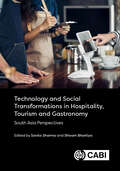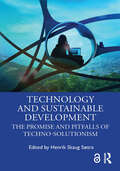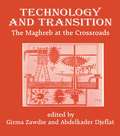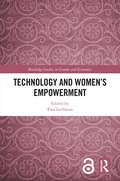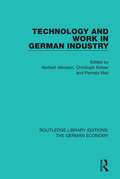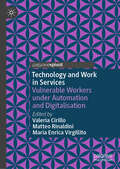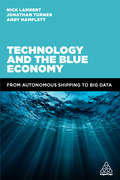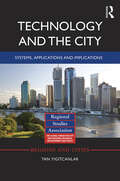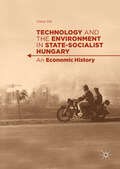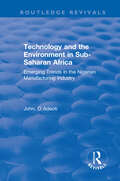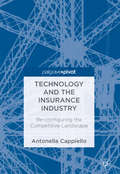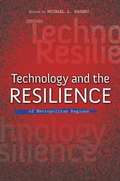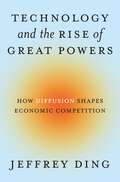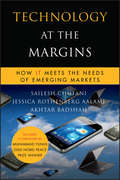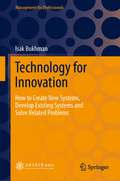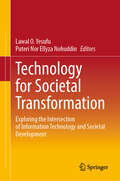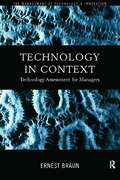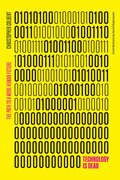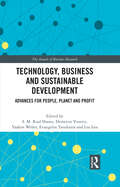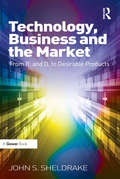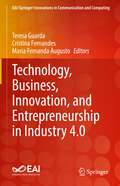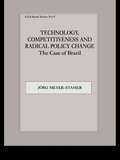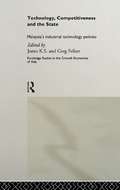- Table View
- List View
Technology and Social Transformations in Hospitality, Tourism and Gastronomy: South Asia Perspectives
by Amit Kumar Sanjeev Kumar Amandeep Khurana Omar Abdullah Kamlesh Attri Vaibhav Bhatt Sonali Chhetri R K Dhodi Rashmi Dhodi Afsheen Hassan Fatemeh Shah Hosseini Suneel Kumar Varinder Kumar Rekha Maitra Zahra Nadalipour Teena Pareek Bindu Roy Dilraj Singh Shadev Sidharth Srivastava Tahir Sufi Kuldeep VermaThis book explores the relationship between technology and social transformation in tourism, hospitality and gastronomy. It presents research and case studies, elaborating on benchmark practices adopted by tourism and hospitality professionals. In recent years, technology has transformed the tourism and hospitality industry; the chapters in this book cover areas such as guest experience and service quality, as well as operational areas such as housekeeping and waste management. Further social transformation in tourism is a result of drivers such as a growing interest in gastronomy and the use of social media; this is covered in the first part of the book. The second part outlines how communities may learn from these events. With contributions from academics, entrepreneurs, destination managers and government officials from the South Asia region, this book offers a real insight in to these areas of growing interest and provide a useful resource for those researching and studying within the areas of tourism development and hospitality.
Technology and Sustainable Development: The Promise and Pitfalls of Techno-Solutionism
by Henrik Skaug SætraTechnological change is at the core of all major disruptions in human history, and revolutions, wars, and general development are regularly connected to some sort of technological change. However, not all development is beneficial. While technology has fueled great innovations and rapid development, the notion of sustainable development has gained prominence as we now experience serious social, economic, and environmental challenges. This book examines whether technology can be used to fix the very problems caused by technology, as the various chapters examine different aspects related to how technology has brought us where we are today (which some will say is the best place humanity’s been at according to a range of metrics), and whether technology helps or hinders us in our efforts to solve the challenges we currently face. The issues discussed cover the three sustainability dimensions and include topics such as the materiality of AI, technology in education, AI for gender equality, innovation and the digital divide, and how technology relates to power, the political system, and capitalism. The chapters all build on the theoretical backdrop of technological change, sustainable development, and the UN’s Sustainable Development Goals are actively used throughout this book, both to examine how these goals capture or overlook central elements of sustainable development, and also to facilitate and create a common framework of engagement between the chapters. This book provides a novel combination of traditional theories that are explored through different case studies, providing the ground for a better understanding of how and when technology can –and cannot –be the enabler of sustainable development. It is thus an important resource for students of all disciplines, technologists, and those developing and applying new technologies. It is also a valuable resource for politicians and regulators attempting to harness the power of technology for good, while limiting its negative potential. The Open Access version of this book, available at www.taylorfrancis.com, has been made available under a Creative Commons [Attribution-Non Commercial-No Derivatives (CC-BY-NC-ND)] 4.0 license. Funded by Ostfold University College.
Technology and Transition: The Maghreb at the Crossroads
by Abdelkader Djeflat Girma ZawdieThe Maghreb countries had a promising start in economic growth after independence. For the most part they thrived on industrialisation by import substitution; but unfortunately this strategy left them with macroeconomic and structural imbalances which together have effectively constrained their ability to compete in the world economic system and to catch up with the rapidly changing global techno-economic circumstances. Issues relating to aspects of technology transfer to the Maghreb, strategies for technological and resource development and the integration of education and R&D systems with the productive systems of the economies in the region are discussed along with relevant cases from Mexico, China, South Korea, India and Bangladesh.
Technology and Women's Empowerment (Routledge Studies in Gender and Economics)
by Ewa LechmanThe near-ubiquitous spread of ICT offers unprecedented opportunities for social and economic agents, reshapes social and economic structures and drives the emergence of socioeconomic networks. This book contributes to the growing body of literature and present state of knowledge, offering the reader broad evidence on how new information and communication technologies impact women’s economic and social empowerment and hence have an impact on overall welfare creation. More specifically, it concentrates on demonstrating how ICT may become "empowering technologies" through their implementation. The book is designed to provide deep insight into the theoretical and empirical evidence on ICT as a significant driver of women`s social and economic development. Special focus is given to examining the following broad topics: channels of ICT impact on women's development; the role of ICT in enhancing women's active participation in formal labor markets; examples of how ICT encourages education, skills development, institutions development et alia, and thus contributes to women’s social and economic empowerment, as well as case-based evidence on ICT's role in fostering women’s equality. The primary audience for the book will be scholars and academic professionals from a wide variety of disciplines but mainly those who are concerned with addressing the issues of economic development and growth, social development, the role of technology progress in the context of broadly defined socioeconomic progress.
Technology and Work in German Industry (Routledge Library Editions: The German Economy #1)
by Pamela Meil Norbert Altmann Christoph KohlerGerman industry in particular is a central focus for studying technical and organizational changes in industry due to its pivotal position in international markets, its technological sophistication and its well-established training systems. Originally published in 1992, this study brings together contributions which contain both theoretical approaches and extensive empirical studies, on the manufacturing industry in Germany, including comparisons to other european countries. It looks at the developments of new technology, identifying trends in rationalization and the influences they have on organizational behaviour. As it discusses the relationships between technology and the work-force it includes discussion on flexible specialization, labour processes, union relations, small and large firms and training processes.
Technology and Work in Services: Vulnerable Workers under Automation and Digitalisation
by Maria Enrica Virgillito Valeria Cirillo Matteo RinaldiniAutomation in industrial sectors is already a well-developed topic in management, economics, and sociology literature. By contrast, this short contributed volume sheds new lights on the process of automation in the service sector, by means of a workplace case-study approach. It investigates three essential sectors largely populated by a vulnerable workforce composition, namely logistics, cleaning and healthcare, and assesses the extent to which processes of automation introduced by managerial decisions entail labour expulsion and human substitution. The result of the research shows that the most low-valued workers are among the least automatable, because of the inherent complexity their activities. Leveraging on this, the book argues the need to reconsider the essentiality of labour as determinant of its value. It will be of great interest to scholars and students of management, economics and sociology with an interest in labour, industrial relations, innovation and decent work and employment.
Technology and the Blue Economy: From Autonomous Shipping to Big Data
by Jonathan Turner Nick Lambert Andy HamflettSeventy percent of the planet is covered by water, and ninety percent of global economic trade is transported by sea. The oceans are inextricably linked with food security and the global economy. Technology and the Blue Economy examines the vital role that technology plays in developing the blue economy. It provides a clear, accessible picture of the current and future potential of technology within different sectors in the blue economy, such as offshore energy, ports and harbours, shipping, maritime surveillance and cyber security.Technology and the Blue Economy looks at the disruption of established business models through case studies of leading innovators, examining development issues, what they have learned and how they have transformed their current ways of working within their organizations. Along with actionable takeaways at the end of each section, readers will learn from and be inspired by the front-line experiences of Blue Economy innovators.
Technology and the City: Systems, applications and implications (Regions and Cities)
by Tan YigitcanlarThe interplay between smart urban technologies and city development is a relatively uncharted territory. Technology and the City aims to fill that gap, exploring the growing importance of smart technologies and systems in contemporary cities, and providing an in-depth understanding of both theoretical and practical aspects of smart urban technology adoption, and its implications for our cities. Beginning with an elaboration of the historical significance of technologies in economic growth, social progress and urban development, Yigitcanlar introduces the most prominent smart urban information technologies. The book showcases significant smart city practices from across the globe that uses smart urban technologies and systems most effectively. It explores the role of these technologies and asks how they can be adopted into the planning, development and management processes of cities for sustainable urban futures. This pioneering volume contributes to the conceptualisation and practice of smart technology and system adoption in our cities by disseminating both conceptual and empirical research findings with real-world best practice applications. With a multidisciplinary approach to themes of technology and urban development, this book is a key reference source for scholars, practitioners, consultants, city officials, policymakers and urban technology enthusiasts.
Technology and the Culture of Progress in Meiji Japan (Routledge/Asian Studies Association of Australia (ASAA) East Asian Series)
by David G. WittnerIn this book David Wittner situates Japan’s Meiji Era experience of technology transfer and industrial modernization within the realm of culture, politics, and symbolism, examining how nineteenth century beliefs in civilization and enlightenment influenced the process of technological choice. Through case studies of the iron and silk industries, Wittner argues that the Meiji government’s guiding principle was not simply economic development or providing a technical model for private industry as is commonly claimed. Choice of technique was based on the ability of a technological artifact to import Western "civilization" to Japan: Meiji officials’ technological choices were firmly situated within perceptions of authority, modernity, and their varying political agendas. Technological artifacts could also be used as instruments of political legitimization. By late the Meiji Era, the former icons of Western civilization had been transformed into the symbols of Japanese industrial and military might. A fresh and engaging re-examination of Japanese industrialization within the larger framework of the Meiji Era, this book will appeal to scholars and students of science, technology, and society as well as Japanese history and culture.
Technology and the Environment in State-Socialist Hungary
by Viktor PálThis book explains how and why the state-socialist regime in Hungary used technology and propaganda to foster industrialization and the conservation of natural resources simultaneously. Further, this book explains why this process was ultimately a failure. By exploring the environmental pre-history of communist Hungary before analyzing the economic development of the Kádár regime, Pál investigates how economic and environmental policies and technology transfer were negotiated between the official communist ideology and the global economic reality of capitalist markets. Pál argues that the modernization project of the Kádár regime (1956–1990) facilitated ecological consciousness – at both an individual and societal level – which provoked great social unrest when positive environmental impact was not achieved. Today, global issues of climate change, urban pollution, resource depletion, and overpopulation transcend political systems, but economic and environmental discourses varied greatly in the twentieth century. This volume is important reading for all those interested in economic and environmental history, as well as political science.
Technology and the Environment in Sub-Saharan Africa: Emerging Trends in the Nigerian Manufacturing Industry (Routledge Revivals)
by John. O AdeotiThis title was first published in 2002. Why do firms adopt pollution control technologies? How can environmental policy be strengthened? How can technology and industrial policies achieve green innovation? This volume critically examines whether the "stimulus-response" notion of environmental policy functions as the primary motivation for the adoption of pollution control technologies. It also questions whether technology and industrial policies can help to achieve the objective of green innovation. Interesting and well-researched empirical case studies offer important insights into the observed trends in the quantitative analysis. Focusing in particular on Nigerian industry, John Adeoti exposes the gains from and constraints upon firms' technology investment in pollution control.
Technology and the Future of Office Space
by Arthur I Segel Andrew BaumIndustry and Background Note
Technology and the Insurance Industry: Re-configuring The Competitive Landscape
by Antonella CappielloThe book analyzes the role of technology in the redefinition of the competitiveness of insurance markets. With a focus on the competitive challenges of InsurTech startup to the incumbent insurers, the book will discuss the strategic role of technology both in the development and in the distribution of insurance services and explore the customer relationship evolution following the digitalization of services offered. The book presents original theoretical and empirical contributions addressing how digitalization impacts the insurance environment and regulation, and how InsurTech development represents a threat for traditional companies, from Big Data analysis to digital devices, from personal interactivity to home automation systems development. The project’s key benefit is up-to-date analysis of the competitiveness of technology usage in the insurance field, with particular reference to the distributive variable and to the future trends of the customer relationship in the short and medium-long term. The book will be of particular interest to scholars and students of insurance and financial technology.
Technology and the Resilience of Metropolitan Regions
by Michael A. PaganoCan today's city govern well if its citizens lack modern technology? How important is access to computers for lowering unemployment? What infrastructure does a city have to build in order to attract new business? In this new collection, Michael A. Pagano curates engagement with such questions by public intellectuals, stakeholders, academics, policy analysts, and citizens. Each essay explores issues related to the impact and opportunities technology provides in government and citizenship, health care, workforce development, service delivery to citizens, and metropolitan growth. As the authors show, rapidly emerging technologies and access to such technologies shape the ways people and institutions interact in the public sphere and private marketplace. The direction of metropolitan growth and development, in turn, depends on access to appropriate technology scaled and informed by the individual, household, and community needs of the region. Contributors include Randy Blankenhorn, Bénédicte Callan, Jane Fountain, Sandee Kastrul, Karen Mossberger, Dan O'Neil, Michelle Russell, Alfred Tatum, Stephanie Truchan, Darrel West, and Howard Wial.
Technology and the Rise of Great Powers: How Diffusion Shapes Economic Competition (Princeton Studies in International History and Politics #222)
by Jeffrey DingA novel theory of how technological revolutions affect the rise and fall of great powersWhen scholars and policymakers consider how technological advances affect the rise and fall of great powers, they draw on theories that center the moment of innovation—the eureka moment that sparks astonishing technological feats. In this book, Jeffrey Ding offers a different explanation of how technological revolutions affect competition among great powers. Rather than focusing on which state first introduced major innovations, he investigates why some states were more successful than others at adapting and embracing new technologies at scale. Drawing on historical case studies of past industrial revolutions as well as statistical analysis, Ding develops a theory that emphasizes institutional adaptations oriented around diffusing technological advances throughout the entire economy.Examining Britain&’s rise to preeminence in the First Industrial Revolution, America and Germany&’s overtaking of Britain in the Second Industrial Revolution, and Japan&’s challenge to America&’s technological dominance in the Third Industrial Revolution (also known as the &“information revolution&”), Ding illuminates the pathway by which these technological revolutions influenced the global distribution of power and explores the generalizability of his theory beyond the given set of great powers. His findings bear directly on current concerns about how emerging technologies such as AI could influence the US-China power balance.
Technology at the Margins
by Jessica Rothenberg Aalami M. Yunus Akhtar Badshah Sailesh ChutaniRemain competitive by offering more accessible, affordable, and relevant information technologies that meet mass-market needsTechnology at the Margins demonstrates that by making IT more accessible, affordable, and relevant, new mass markets can be opened. Based on solid insights generated in key areas of health, education, finance and the environment, the book offers practical recommendations and insights from world leaders, innovators, practitioners and new users of emergent technologies. Offers recommendations on how companies can ensure their own competitiveness by offering more accessible, affordable, and relevant information technologies to support mass market needsSuggests practical recommendations and insights from world leaders, innovators, practitioners and new users of emergent technologiesChallenges businesses to rethink their uses of existing technologiesTechnology at the Margins will be of interest to decision makers in the private, public and nonprofit sectors who are interested in opportunities offered by IT in meeting the needs of those at the base of the worlds economic pyramid.
Technology for Innovation: How to Create New Systems, Develop Existing Systems and Solve Related Problems (Management for Professionals)
by Isak BukhmanThis book offers readers a simple, attractive, detailed knowledge of TRIZ and applied TRIZ, Technology for Innovation.The genius of Genrich Altshuller and his many followers created TRIZ by using the best practices of thousands of most talented engineers and scientists, which made our technological civilization. TRIZ is a science and philosophy for new system creation and existing systems development, and related problem-solving. TRIZ helps to create the best possible solutions for even the most critical problems. TRIZ is the best we have today on our Planet for industry, technology, business, and education development.As a life philosophy, TRIZ helps realize every human being's privilege and obligation to be a creative person and live a creative and successful life. Applied TRIZ, Technology for Innovation is the process of using all parts of TRIZ combined with other proven design development methods and best practices of effective project teams for a system (products, devices, technologies, services) development and problem-solving.Technology for Innovation is applying through individual innovation Roadmaps for project creation and problem-solving.The structure and content of the book follow the standards and requirements of the curriculum for Universities. This book is a textbook for students and teachers at the university and high school level and a practical handbook for any manager, engineer, and specialist involved in product and technology development. Of course, the author believes it will also be beneficial and enjoyable to anyone with an inquiring mind, irrespective of age, and specialty.
Technology for Societal Transformation: Exploring the Intersection of Information Technology and Societal Development
by Lawal O. Yesufu Puteri Nor Ellyza NohuddinThis book extensively investigates the dynamic relationship between information technology and societal transformation. The book explores a range of applied IT uses, ranging from educational technology to the complex applications of cybersecurity, the promise of blockchain technologies, e-commerce and rural development, and social media and its applications in political activism. Investigating key topics in social development and the role information technology plays in elevating our lives, the book navigates this ever-changing landscape of technological innovation to determine how it can be a source for good and improve our lives by driving positive social change. While focusing on the practical application of technology to real-world situations, examples, and cases, the book primarily focuses on educational development, entrepreneurship, sociopolitical transformation, and the security and defence of society. Collectively, these explorations serve to better highlight how technology can be harnessed in the creation of a more inclusive and equitable society. Hence, the book will be a useful read for students, academics, policymakers, business and social investors.
Technology in Context: Technology Assessment for Managers (The\management Of Technology And Innovation Ser.)
by Ernest BraunMost managers know very little about the technology they introduce into their firms, often preferring to leave such decisions to a small band of technological 'experts'. As a result large amounts of time and money are often wasted on inappropriate and inefficient systems. The cost of retraining and reorganising can also be prohibitive if the new technology does not deliver the desired results. In a business environment where technology is of increasing importance, the non-technical manager cannot afford to remain in the dark. Technology in Context provides a toolkit of approaches to this difficult subject. Subjects covered include: * the fundamental concepts required for the management of technology * the gathering of information in a firm to support strategic decisions on technology * technology assessment in the public domain * the wider social implications of technology * problems associated with technology, from the danger of environmental degradation to employment and skills.
Technology is Dead: The Path to a More Human Future
by Chris ColbertHow did we end up here, masters of scientific insight, purveyors of ever more powerful technologies, astride the burning planet that created us, and now responsible for cleaning up the mess and determining the future direction of all of life? And what do we do about it?Technology is Dead is a book that attempts to answer both of those questions. It is a book of both challenge and hope, written for those who are able or willing to lead us out of our global predicament. It is a book for everybody: the politicians, CEOs, community leaders, everyday parents, and young people who understand that we must change our ways to ensure a sustainable future for all living things and the planet we rely on.
Technology, Business and Sustainable Development: Advances for People, Planet and Profit (The Annals of Business Research)
by Demetris Vrontis Yaakov Weber Evangelos Tsoukatos Lea Iaia Shams, S. M. RiadTriple bottom line (TBL or 3BL) was coined as a wide and inspiring approach for businesses aimed at understanding how to create, track, and manage economic, social, and environmental values added. The sustainability sector is strongly increasing its relevance among academics and practitioners, and the market opportunities associated with the sustainable development goals (SDGs) are estimated at over $ 12 trillion per year by 2030. Although this is a promising context, a recent article suggested a rethinking of the TBL, arguing that sustainability goals’ value should not be assessed in terms of profit and loss but of people well-being and planet health, looking for a societal profit. Technology plays a crucial role in our society. Respectively, the Agenda 21 and the Paris Agreement consider technology to be essential in the pursuit of sustainable development and the achievement of the SDGs. Adding to this, the Covid-19 pandemic has accelerated the adoption of digital solutions in several fields, from the way of working to the way of buying and consuming. Companies are becoming more aware of the responsibility they have within environmental and human contexts, and people are looking for work reflecting their values and purposes to motivate them. This book aims to contribute to the understanding of the role of technology and its emerging and innovative solutions in the achievement of sustainable development while making a profit. It will be of value to researchers, academics, practitioners, and students in the fields of strategic management, entrepreneurship, management of technology and innovation, and sustainable development.
Technology, Business and the Market: From R&D to Desirable Products
by John S. SheldrakeJohn Sheldrake’s long experience of teaching business and management to engineers has highlighted a gap in the knowledge of students and practitioners alike, between their grasp of developments in science and technology and how these developments lead to the creation of successful products. Using case studies, Technology, Business and the Market explores the impact of new materials, techniques and technologies, and looks at the links between innovation, entrepreneurship, business (including finance), design, manufacturing, branding and marketing. The author examines the ways in which scientific endeavour is conditioned and even distorted by contextual issues such as finance and fashion. This demonstration of the synthesis of technology, business and the market has relevance for students, practitioners and policy makers in established and emerging markets.
Technology, Business, Innovation, and Entrepreneurship in Industry 4.0 (EAI/Springer Innovations in Communication and Computing)
by Teresa Guarda Maria Fernanda Augusto Cristina FernandesThis book presents the most recent innovations, trends, and challenges in several aspects of Industry 4.0, including the key technologies and business impacts. The book is relevant to a variety of stakeholders due to Industry 4.0’s broad impact in many fields. Topics include digital workplace solutions for employee engagement, entrepreneurship and innovation, and Blockchain for business security. The authors cover Industry 4.0 both from a theoretical and applicable standpoint.
Technology, Competitiveness and Radical Policy Change: The Case of Brazil
by Jörg Meyer-StamerThis volume investigates the limited effectiveness of technology policy in the inward-oriented industrialization model of the past. It looks at the political structures that compromise the transition to the development model, and the restructuring effort within Brazilian industrial firms.
Technology, Competitiveness and the State: Malaysia's Industrial Technology Policies (Routledge Studies In The Growth Economies Of Asia Ser. #Vol. 23)
by K. S. Jomo Greg FelkerThis volume, and its companion, Industrial Technology Development in Malaysia, examine and evaluate Malaysian industrialization in terms of its experience of and prospects for industrial technology development. The focus is on role played by state-sponsored innovation in the process economic development and in the context of national development st
